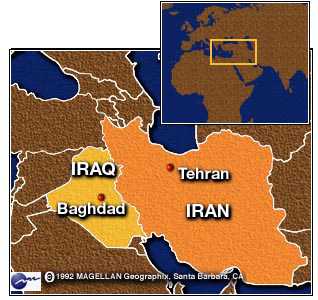 A bitter rift with Iraq has exposed Turkey’s role in a wider Middle East power struggle, with Ankara acting to protect its stability and prosperity from an Iranian-Iraqi “Shiite axis” it fears in the wake of the US military withdrawal from Iraq.
A bitter rift with Iraq has exposed Turkey’s role in a wider Middle East power struggle, with Ankara acting to protect its stability and prosperity from an Iranian-Iraqi “Shiite axis” it fears in the wake of the US military withdrawal from Iraq.
Turkey, a regional power bordering Iraq, Iran and Syria, long tried to play regional mediator.
But the fallout wrought by Arab Spring uprisings and the US exit from Iraq have forced Turkey to make tricky adjustments by cutting old alliances and forming new ones, jettisoning its “zero problems with the neighbors” policy.
That shift, coupled with a more aggressive diplomacy personified by an increasingly combative Prime Minister Recep Tayyip Erdogan – has thrust Turkey into a regional strategic game pitting Gulf Arab states and Ankara against Iran.
“What is really critical is the American withdrawal from Iraq, because that basically made Iraq a much more open playing field for the Iranians,” said Soli Ozel, a prominent Turkish academic and commentator.
Turkish officials have been waging a war of words with Baghdad since December when Iraqi Prime Minister Nuri Al-Maliki ordered the arrest of Sunni Vice President Tareq Al-Hashemi, based on allegations that he ran death squads.
The row is symptomatic of Turkish anxiety that the country’s rising “soft power,” based on a booming economy and relative democratic stability ushered in by Erdogan after a long era of military coups, could be threatened by a nascent “Shiite axis” embodied by Iran and Al-Maliki’s Tehran-backed Baghdad government.
“This is about an escalating power struggle in Baghdad combined with the regional conflict between Iran, Turkey and the Gulf Arab states being played out in Syria and Iraq,” said Hasan Turunc, a fellow at Oxford University. Turkey accuses Al-Maliki of sowing sectarian discord by trying to sideline his Sunni rivals – Al-Maliki also called on Parliament to remove his Sunni Deputy Prime Minister Saleh Al-Mutlaq – and has warned of a regional Shiite-Sunni “cold war.”
Al-Maliki says it is Ankara that is stirring sectarian tension, calling Turkey a “hostile nation” meddling in Iraq’s internal affairs. Erdogan and Al-Maliki have exchanged public insults and both countries have summoned each other’s top diplomats over the past few months in tit-for-tat maneuvers.
Compounding tension, Turkish leaders have met publicly with Al-Hashemi, now sheltering in Istanbul after fleeing Iraq in December. Interpol is seeking the arrest of Al-Hashemi, who is being tried in absentia in Iraq. Al-Hashemi denies the charges.
Ankara’s aversion to Al-Maliki is not new. Turkey, anxious to protect trade interests in Iraq amid fears that any renewed Iraqi sectarian war could wash over its borders, long strived to encourage a precarious balance between Iraq’s Sunni, Shiite and Kurdish factions.
This was no better exemplified than by Erdogan’s trip to Iraq in March 2011 when he made sure to visit all three centers of power: Baghdad, Najaf and Arbil.
But that balancing act, analysts say, ended after the US troop withdrawal from Iraq at the end of last year.
Turkey has since publicly received the president of the autonomous Kurdistan Regional Government in Iraq, Masoud Barzani, and Al-Maliki’s rival and Iraqiya leader, Iyad Allawi.
For its part, Iran has seen Turkey’s shift in orientation in toward its own backyard, a region it once deemed “backward,” as a more potent challenge to its aspirations to Middle East predominance than the old, purely pro-Europe Turkey.
As with Iraq, Turkey has traditionally tried to mediate over Iran, particularly Tehran’s controversial nuclear ambitions.
But friction between Turkey and Iran has mounted over their backing of opposing sides in Syria’s conflagration and Ankara’s assent to housing part of a NATO missile defense shield that the United States says is directed against the Islamic Republic.
Some Iranian officials also objected to Turkey playing host to a revival of talks between the six global powers and Iran to head off confrontation over its shadowy nuclear program.
The talks between Iran and Britain, China, France, Germany, Russia and the United States did go ahead in Istanbul in April but not before Erdogan lashed out at Tehran, saying the Iranians “lacked honesty” and were “losing their international prestige.”
Sinan Ulgen, a former Turkish diplomat and now chairman of the Center for Economics and Foreign Policy Studies think-tank, said Erdogan’s increasingly strident approach was aggravating strains in ties between Ankara and its neighbors.
“It is his posturing that has led to crises with our neighbors. If he hadn’t approached matters in a polarizing, black-and-white fashion, we wouldn’t have lost the ability to manage these relationships,” Ulgen said.
“Instead of being the last person to intervene, very often he is the first to react. What he says then becomes policy, and limits Turkey’s room for maneuver; it corners us and policy becomes ossified.” One entity that has profited from this regional power tussle is the semi-autonomous Kurdish region in northern Iraq.
www.menafn.com
via Turkey Aims to Contain Iraq, Iran.

